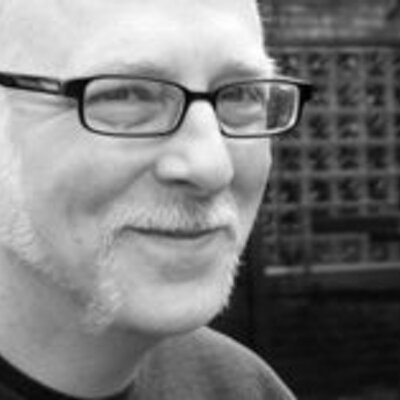back in the prc
copyright ©2001,2019 arden henderson
Wu Chiang was very nervous. He glanced down at his wristwatch for the umpteenth time since he had arrived here at his cousin’s office, deep in official, yet low-profile, CCP offices nestled inside Beijing. Again it appeared as if the minute hand had not moved; in fact, it had not.
He had only been here ten minutes since when he first checked the time. It seemed time was slowing down. He looked around. The furnishings were plain and merely functional – governmental ersatz-corporate. One could immediately tell this office was an official CCP location with the many banners and emblems. But the office decor was purposefully low-stated. (This made Wu even more worried. There was something about it.)
Even the routine photograph of Chairman Mao was smaller than usual, though it dominated the east wall easily enough. The place looked like it needed a coat of paint, but it suddenly occurred to him that it did have fresh paint (the ladder and buckets in the hallway a giveaway) yet was textured and mixed to look aged. That was puzzling. He tried not to think of the implications.
This was the outer office. A secretary, a woman in her thirties dressed in a conservative business suit, was busy typing something on her computer. She glanced at a nearby paper from time to time, and occasionally picked up her idling cigarette and took a puff.
Her computer looked to be an older PC. She did not glance his way after she had inquired his name. Even then her eyes never met his. It was as if he didn’t exist. Which was fine. The place made him nervous. And he wasn’t normally a nervous guy. In fact, in the circles he worked and traveled, he was the guy who made people nervous. But not here.
It was only because his cousin worked here that Wu would even think about coming here. Now that he thought about it, he had no idea these offices existed before the phone call this morning. The directions had been exact.
He thought about his ride over. These offices were nondescript on the outside, purposefully so because they were only a few blocks from #3 Xiushui Bei Jie, Jianguomenwai. Wu had taken the bus here, not wanting to use his usual driver and car this time. It was a mission of most importance. He had to see his cousin Zhao Zhi-Qiang. It was a family mission.
Zhao was mostly the same age as Wu, who had just turned forty himself. To the untrained Western eye, either could be 25–32. Actually, Wu wasn’t sure if his cousin was exactly the same age – their mothers were sisters but Wu’s mother was at least four years younger. So maybe his cousin was older, he thought idly. But not by much.
It wasn’t until Wu had transferred to his current government position that old ties had been revived. He had only seen Zhao occasionally at sporadic extended family gatherings while growing up and attending the universities. They didn’t have much in common other than being relatives. They didn’t even grow up in the same regions. His cousin, of course, was Beijing since day one, Wu had grown up near Shanghai (a source of neverending consternation to elder family members from Beijing). Wu missed Shanghai. He missed the spark and electricity of the city not to mention a certain feeling of independence. He didn’t mention any of this in his new office. It was Beijing all the way now.
The family, especially his mother, had always made a big deal about Zhao’s rapid rise in the CCP. Wu Chiang – Number Three Son – had always personally and secretly felt he disappointed his own parents with his own failure to join the CCP. Yet, it was not to be the fate for his career track, and, quite frankly, he was somewhat relieved.
He was happy working in military intelligence. Things were much clearer and defined there. Wu preferred the definition and clarity of the military. Though members of the PLA were inherently members of CPP (and, before the new capitalism opportunities, many often joined the PLA just for that very reason in hopes of advancing status and careers of themselves and their families), Wu was not a part of the movers-and-shakers CCP bureaucracy like his cousin Zhao.
His mother was convinced, and often remarked upon her convictions, that Wu had not worked hard enough, had not studied hard enough, and had not made the right friendships to advance as high as her nephew, Zhao Zhi-Qiang. His mother could be relied to bring this subject up at any given visit.
So, conversation with his (maybe older) cousin, at least until this day, had been the occasional happenstance family small-talk pleasantries. Such was the rare occasions of family reunions (usually marriages and funerals) and the odd phone conversation. They had never talked government or current events or anything outside the extended family, now that he thought about it. Wu’s brow furrowed as he mulled over this. The secretary’s cigarette smoke was beginning to get to him. He wanted one himself but had quit two months ago.
Wu wondered when his cousin would emerge from the inner office and beckon him in. He sipped on the green tea procured from a nearby steaming teapot. It tasted fresh enough. He wondered what was in it besides green tea. Maybe there was some sort of dye whereby overhead monitoring systems could detect him for months later. Hahaha he chuckled to himself, even as his worry grew in general about this entire trip. Too many American movies.
Which reminded him: After this business about his niece was discussed, he would have to ask his cousin about his cousin’s collection. Family members had remarked on the huge cache of USA video tapes. There were rumors Zhao had moved to USA DVDs and Wu looked forward to hearing about them, maybe purchasing some.
In the meantime, his next purchase would no doubt be an upgraded cell phone for his wife of 15 years. She had essentially said so, anyway. Of recent, she had become exceedingly demanding, far beyond the traditional expectations. She had even gone so far as to suggest he retire from his military career to take up import/export – she was sure WTO status was imminent for China. She wanted to be in on the first wave and was becoming impatient with him over the issue, or so it seemed to Wu. The recent USA plane controversy would soon fade, she reasoned in her fem way, a female trait transcending all cultures. Wu hoped the new cell phone (in a trendy translucent blue) would sidetrack her. She already had an older one; he had no idea who called at all hours but so far he had wisely pretended to not notice.
These thoughts slipped through his mind fleetingly. His fretful thoughts turned again to his niece far away in the USA and the documents he had discovered three days ago when preparing for a new military intelligence operation. After three nights of tossing and turning, he had called his cousin and Zhao suggested this meeting today.
Wu’s daughter and son had both attended graduate school in the America. After graduate school, the son had returned. The daughter was still in a USA university. The niece was his brother’s child. She had been unofficially adopted, taken under wing, after his brother was sent away and mother disappeared. Wu shook his head ever so slightly, thinking about all this. A serious look shadowed his face.
Anyway, until now, he had not been so worried about anything. Now this information about the niece. Not good. She was a strong girl and he was sure she would easily skirt past the rocky shoals of American decadence and study hard, have a good career, and then a husband and child, preferably back here, as was expected. American decadence, of course now he knew, wasn’t the trouble. It was far worse. Only his cousin, from CCP vantage point, could possibly explain. Zhao would know what to do.
Wu sighed to himself.
Wu looked up at the closed inner office door, past the detached business-like secretary. (Now he was sure he recognized her from a surveillance operation three months ago – she clearly was with someone other than her husband. He could be mistaken; she was in no way dressed the same today. The club had been dark with lots of strobe lights. Besides, he had been with a team and they had other business at the time. Probably his imagination. Been waiting here too long.)
He glanced at his watch again. He fidgeted with the folder of papers.
He worried. He waited.
Over at the USA consulate at #3 Xiushui Bei Jie, Jianguomenwai, Beijing, deep in the hardened scan-proof basement, CIA operative William K. Franklin turned to his coworker, CIA operative Jane D. Tran, and frowned.
“Do you think we have a malfunction? It’s awfully quiet in the outer office. No noise. Maybe they’re communicating with sign language or notes. Even the secretary has stopped typing. Maybe she’s reading now,” he said.
Franklin, a fresh 24, was fifth generation Irish. Somehow the surname had morphed through the ages but the closely cropped red hair told the story.
Tran was first generation Asian American, 27-years-old. Normally, US intelligence did not put same race/culture in same regions – Korean Americans in Korea, Chinese Americans in China, and so on. A sort of standard practice of prudence. In Tran’s case, this policy didn’t apply; she was first generation American-Vietnamese.
Tran was a special case. Multiple Chinese dialects were her specialty for undergrad and graduate work. Her command of major Chinese dialects was formidable and well-known in The Company. She had the very desirable ability to smoothly switch dialects on a whim – Mandarin, Cantonese, Shanghianese, Minbei, Xiang, and so on. She could blend into the fish cleaning wharves of the southern coastal cities and easily switch without missing a beat (or a tone) to hang at upscale political gatherings in skyscrapers high over Beijing. She could merge into a Shanghai disco conversation or chat it up with farm workers in rural northern-central China, all the while seeming as if she grew up in that region.
Tran shrugged. She tossed her head, causing her shoulder-length jet black hair to swing. She got all the newbies, she was the Company’s mama-san in this station, and Franklin was no different. Tran had been stationed here for two years now. Most of the new guys were usually fresh out of their language schools. It seemed they got greener every year. She just hoped they didn’t get into “a situation.” Probably budget cuts. Well, that would soon change, she surmised.
“Don’t worry about it. All the dubs [office-localized slang for bugs; hidden microphones] are working,” she said, adjusting some equipment controls.
Just then they both turned back to the listening, adjusting their headsets, hearing a new noise.
There was the distinct sound of the outer door opening.
From the May 25, 2001, weekly blip. Stories such as this one often accompanied the latest MeenerNeener’s Wedding chapter. Often, the side story had its own thread, resulting in a few more chapters, more or less, riding along in future weekly blip emails with the wedding chapters. There was always a vague implication that the stories would somehow reveal some sort of connection, loop over, or other such hand-waving writer craft, revealing cool heretofore unknown relationships and explanations. Probably this actually happenin in some other weekly blip time continnum where the writers figured it out. Or not.







